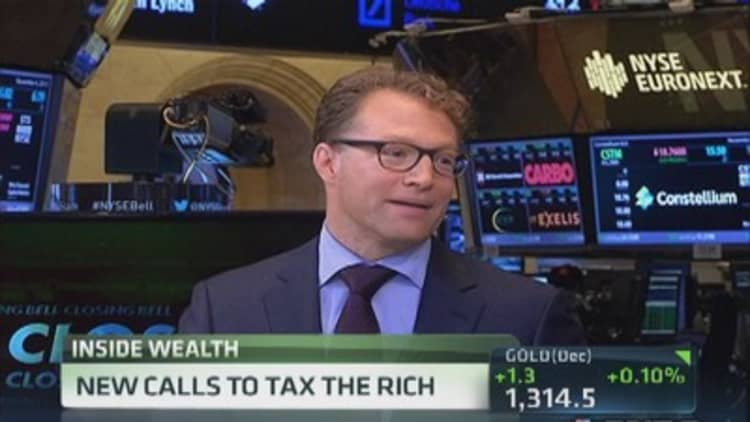Want to move up the economic ladder? Go to college, find a spouse who works and try to avoid getting laid off.
College graduates, people in dual-earner families, whites and those lucky enough to escape a bout of unemployment are also the most likely to move from the bottom fifth of the income ladder to at least the middle, according to a new Pew Charitable Trusts analysis of family income trends.
"Education, race and family employment matter for movement out of the bottom," Diana Elliott, a research officer on economic mobility at the Pew Charitable Trusts, said Thursday.
In general, Pew researchers have noted, the rags-to-riches tale so popular in Hollywood is less likely than many Americans would like to believe.
The researchers' analysis of the Panel Study of Income Dynamics, an in-depth look at family finances from 1968 to 2009, found that just 4 percent of Americans who grew up at the bottom fifth of the household income ladder made it to the top fifth as adults.
(Read more: Employers: 'Skills gap' is not our problem to fix)
Overall, 43 percent of people who are raised in a family at the bottom of the income ladder stay there as adults.
The new analysis, released Thursday, looks at what factors made it more likely for those economic success stories to occur.
The Pew researchers compared adults in their prime working years with their parents at the same point in their lives.

They found that it paid to go to college: 53 percent of college graduates had moved from the bottom fifth of the income ladder to at least the middle, compared with just 28 percent who did not graduate from college.
Having more than one family paycheck also mattered. Fifty percent of people in dual-earner families had moved from the bottom fifth to at least the middle, compared with just 24 percent in single-earner homes.
(Read more: How the weak jobs recovery slammed men and women)
The researchers also found that a stint of unemployment can be a severe setback. About 34 percent of people who did not experience any unemployment made it from the bottom to the middle, compared with just 15 percent that had experienced unemployment.
Race also appears to be important. The researchers found that whites were two times more likely to leave the bottom quintile at all than blacks. The data set from the early years was too small to get an accurate comparison of Hispanics and other races, Elliott said.
Elliott also noted that those who moved out of the bottom of the income ladder had more savings, wealth and home equity than those who did not.
(Read more: The class divide: Marriage as a 'luxury good')
Although that shouldn't be taken to mean that higher wealth drives people up the income ladder, she said it does show that people who have more money are able to do the things that help a person get—and keep—a higher-paying job. That can range from going to college without taking on onerous student loan debt to having enough money to fix your car if it breaks down, allowing you to get to work consistently.
"It underscores that financial security and economic mobility really go hand in hand," she said of the finding.
—By CNBC's Allison Linn. Follow her on Twitter @allisondlinn and Google or send her an email.



